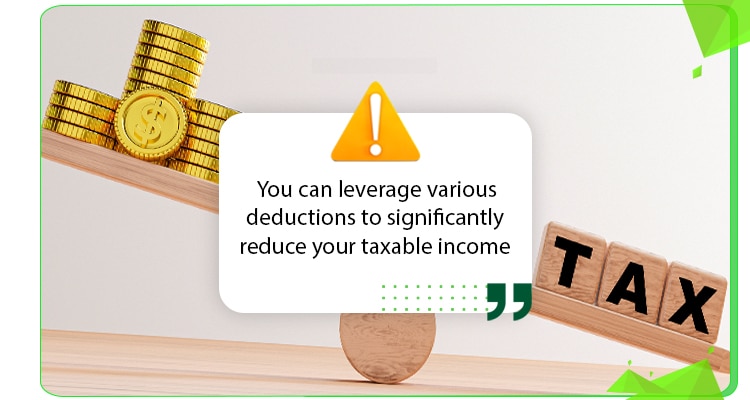The Australian tax system—like any other in the world—is complex and multi-layered.
Aside from the computation of taxes, there are also compliance obligations and deadlines that can sometimes be overwhelming for even the most experienced business owner.
From income tax to goods and services tax (GST) and other levies, understanding the basics is essential for effectively managing your fiscal responsibilities.
Keep reading to gain a clearer understanding of the key components of taxation in Australia and how they might affect your business operations.
Key Components of Taxation in Australia
In Australia, taxation plays a role in sustaining the public services and infrastructure that businesses rely on daily.
Understanding these tax components leads to compliance that optimises your business’s financial strategy.
Income Tax
Income tax is the Australian government’s main source of revenue, which is derived from:
- Individuals
- Businesses
- Various other entities that operate for profit within the country
Understanding the different tax brackets, rates, and thresholds is important as this enables you to:
- Allocate your finances efficiently
- Take advantage of any applicable tax relief or allowances
- Avoid penalties associated with non-compliance
As your business grows, so will your tax obligations, so it helps to cultivate a basic understanding of one of the most fundamental concepts: the Goods and Services Tax (GST).
Goods and Services Tax (GST)
GST is a 10% tax on most goods, services, and other items sold or consumed in Australia.
All businesses that meet the minimum annual income threshold are required to register for GST.

Proper understanding and management of GST can help prevent costly errors in tax reporting, such as:
- Understanding what counts as a GST credit
- How to issue tax invoices
- When to report earnings
Additionally, accurate GST tracking simplifies the process of claiming your GST credits.
This means you can effectively recover the GST paid on business-related expenses during your tax filings, reducing the overall cost of goods and services sold.
That being said, let’s take a look at another kind of business taxation you’re bound to run into when you make profits off selling assets instead of goods and services—the Capital Gains Tax (CGT).
Capital Gains Tax (CGT)
Capital Gains Tax (CGT) applies when you sell an asset, such as property, shares, or part of a business, and make a profit from the sale.
Understanding how CGT factors into your tax obligations is important.

Calculating capital gains involves determining the difference between what it cost you to acquire an asset and the profit you received when you sold it off.
Strategic planning can include timing the sale of assets to minimize tax liabilities or taking advantage of CGT discounts and exemptions.
Staying compliant requires accurate record-keeping and timely reporting of any gains or losses in your tax returns.
Beyond managing profits from asset sales, it is equally vital to understand how you can reduce your taxable income through various deductions and credits.
Common Tax Deductions and Credits
Tax deductions and credits are one of the most effective ways to reduce your overall tax liability.
By understanding the deductions and credits available and how you can apply them, businesses and individuals can significantly lower the amount of tax they owe each year.
From work-related expenses to specific tax offsets, these financial benefits are designed to provide relief in various areas.
Work-Related Deductions
For many professionals, work-related deductions are a key area where they can achieve significant tax savings.
To illustrate, you can claim deductions for expenses directly related to how you earn your income, including:
- Travel costs
- Purchase of uniforms
- Additional training or upskilling expenses
To maximise these deductions, it is important to maintain thorough documentation such as:
- Receipts
- Bills
- Travel logs
- Work-related activities
Understanding the eligibility criteria for these deductions enable you to make claims that are legitimate and comply with Australian Tax Office (ATO) guidelines.
You may also want to consider potential deductions related to investment and property, which brings us to the next section.
Investment and Property Deductions
If you own investment properties, you can leverage various deductions to significantly reduce your taxable income.
Key deductions include:
- Interest on loans used to buy or improve your property
- Maintenance costs
- Depreciation of assets like furniture and fixtures within the property

For landlords, understanding how to calculate depreciation can be particularly valuable if you want to save thousands in taxable income.
These property-related deductions require you to keep detailed records to support your claims, including:
- Purchase receipts
- Loan agreements
- Repair bills
Navigating these deductions correctly guarantees compliance and increases the value of your investment returns.
You can also explore how specific tax offsets and credits can further reduce your financial burden.
Tax Offsets and Credits
The Australian tax system offers various offsets and credits designed to reduce the amount of tax you pay.
For example, the low-income tax offset (LITO) provides a reduction in payable taxes for eligible low-income earners, enhancing their financial well-being.

Additionally, seniors and pensioners may qualify for the seniors and pensioners tax offset (SAPTO), which also significantly lowers tax liabilities.
These tax reliefs are designed to support individuals and businesses in various life stages and economic situations for a fairer taxation system.
However, tax laws are generally complex and to maximise your rights under them, seeking professional tax help is recommended.
Seeking Professional Tax Help
Understanding tax laws, offsets, and deductions can be tedious and time-consuming, and getting it wrong can be costly.
This is why many business owners turn to accredited tax advisors or accountants to stay compliant and to better optimise their tax position.
Choosing a Tax Advisor
Selecting the right tax advisor starts with looking up candidates that are fully accredited by relevant Australian accounting or tax bodies.
These qualifications guarantee that the advisor has 1.) adequate knowledge to do the job and 2.) adheres to professional standards.
Additionally, it helps to choose someone with experience in your specific industry or with businesses similar in size and structure to yours.
These professionals can provide strategic, free advice tailored to your business’s unique circumstances.
As you consider the benefits of engaging a tax professional, think about the broader impacts on your business.
Benefits of Professional Tax Assistance
Professional tax assistance offers a range of advantages for any business.
With an expert’s help, you can maximise your deductions and take advantage of all applicable tax allowance and programs available.

This level of detailed attention helps you significantly reduce your overall tax liability.
Furthermore, professional advisors provide personalised tax planning advice, helping you make strategic decisions.
Tax professionals also keep your business compliant with Australian tax laws, which can be particularly complex and subject to frequent changes.
This compliance safeguards your business against costly legal issues and penalties, providing peace of mind.
FAQ
Here are some frequently asked questions about the Australian tax system:
What is the deadline for filing taxes in Australia?
The standard deadline for filing individual tax returns in Australia is October 31st for the previous financial year, which ends on June 30th.
However, if you are using a registered tax agent for your tax preparation and lodgement, you might be eligible for a later deadline.
Thus, it’s important to engage with a tax professional early if you need or want to benefit from extended deadlines.
Can I file my taxes online?
Yes, individuals and businesses in Australia can file their taxes online through the Australian Taxation Office’s (ATO) myTax platform.
This network is accessible through the ATO website and allows users to submit their tax returns easily and securely.
Additionally, most tax agents offer online services, providing another convenient option for managing and submitting your tax returns electronically.
What happens if I make a mistake on my tax return?
If you realize that you’ve made a mistake on your tax return, it is important to address it promptly.
The ATO allows taxpayers to amend their tax returns to correct errors or omissions.
Depending on the nature of the mistake, amendments can often be made online via myTax or through your tax agent.
If the error results in a higher tax liability, you may have to pay a penalty; however, addressing the mistake quickly can help minimize the amount incurred.
Wrapping Up
With the right tools and guidance, finding your way around the Australian tax system gets easier.
Remember, whether you are a seasoned business owner or are filing your taxes for the first time, leveraging professional tax advice and support from accredited advisors is invaluable.
- Want specific AI Prompts to help you automate processes? Get the Full AI list here.
- How about a list of the Top Business Apps that could take your company to the next level this 2024? Head over here.
- Whenever you are ready to Hire World-Class, High Performing, Full-Time Virtual Staff at 40%-60% Cost Savings with Lifetime Support head over here.
- View our 1,000 Fully vetted, highly talented virtual staff who can take the more tedious tasks off your hands here.
Darren Aragon is a multifaceted writer with a background in Information Technology, beginning his career in research at Pen Qatar and transitioning through customer service to a significant role at Absolute Service, Inc. His journey into freelance writing in 2021 has seen him excel across various niches, showcasing his adaptability and deep understanding of audience engagement.




















